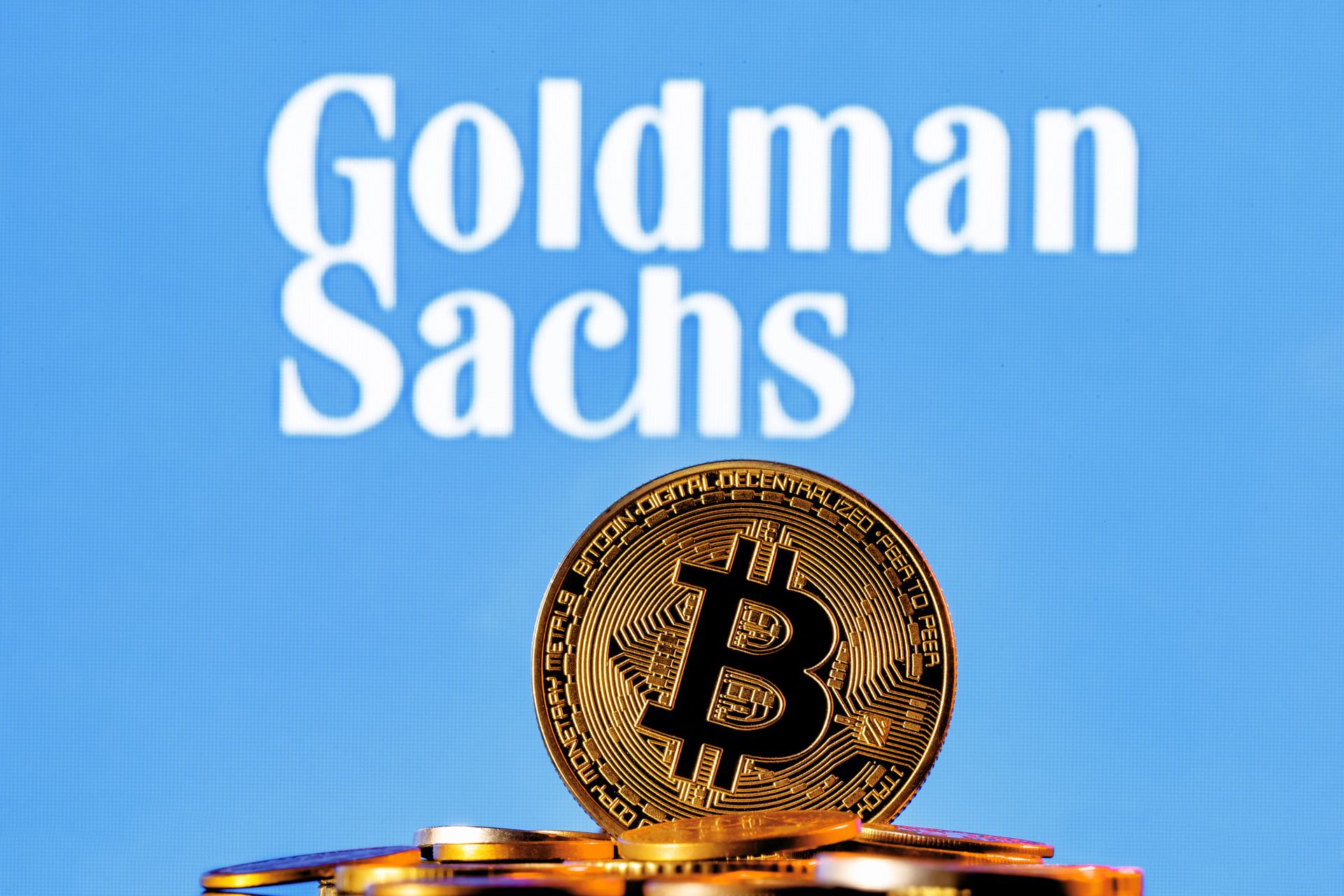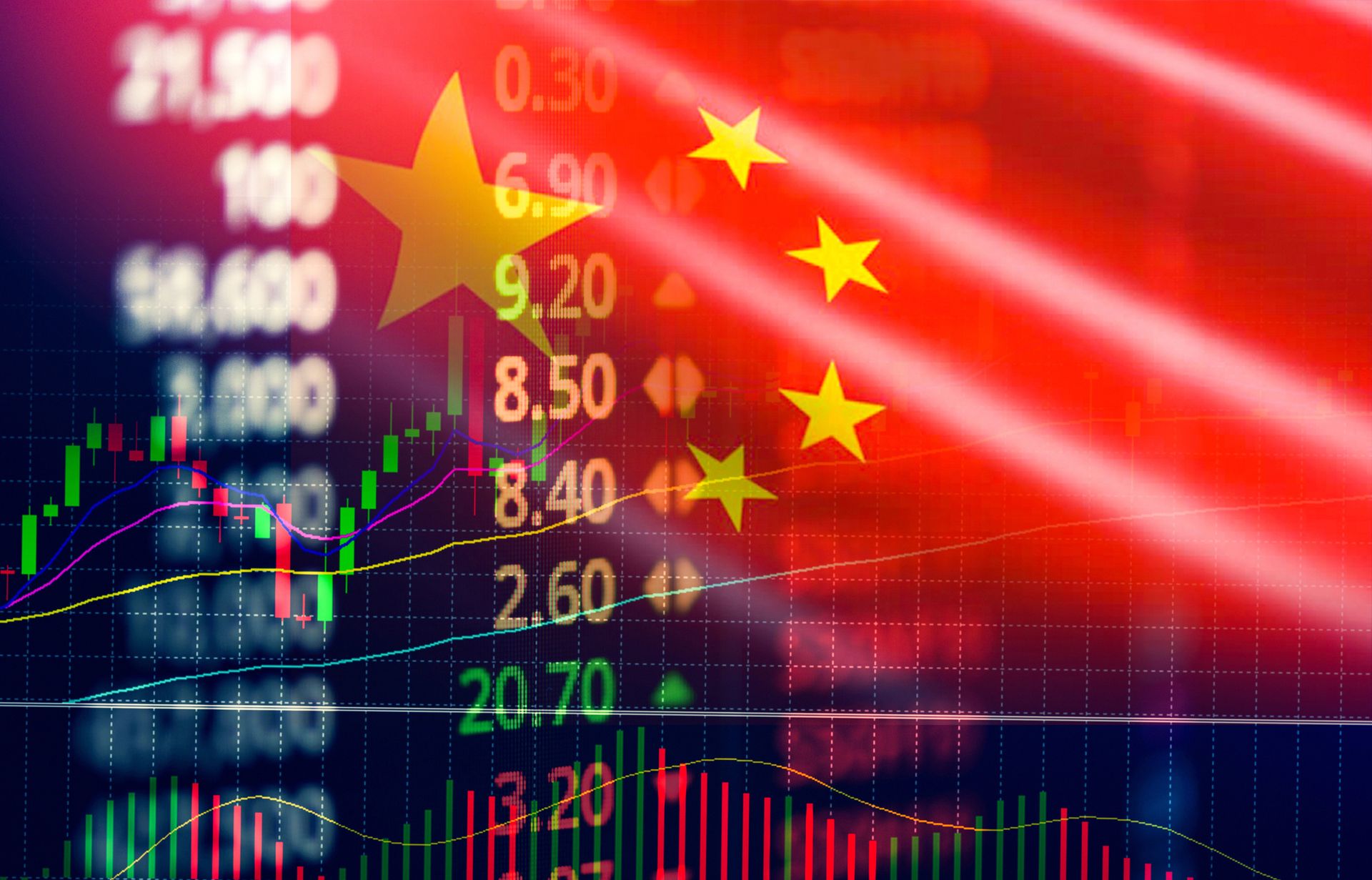586% in a flash. No meme hype, no dilution — just real clinical results. This French small-cap just rewrote the rulebook on ulcerative colitis treatment.

Timing Edge (Sponsored)
The escalating U.S.-China trade tensions are reshaping the AI landscape.
Companies like Nvidia are facing significant revenue hits with the U.S. imposing new export restrictions on advanced AI chips to China.
This shift opens doors for U.S.-based AI companies poised to fill the gap. I’ve identified 9 under-the-radar AI stocks with:
Deep AI integration across their core operations
Strong U.S. manufacturing capabilities
Infrastructure ready to capitalize on policy shifts
Access our FREE report, "Top 9 AI Stocks for This Month" to discover these opportunities before the broader market catches on.

Markets
Wall Street rose today as a newly announced U.S.-Japan trade deal boosted investor optimism and pushed the S&P 500 to record highs, while markets awaited key earnings from Alphabet and Tesla.
DJIA [+1.14%]
S&P 500 [+0.78%]
Nasdaq [+0.61%]
Russell 2k [+1.44%]

Market-Moving News
Banking
Goldman Sachs Rewrites the Rules for $7 Trillion Market With Token Strategy

Goldman Sachs (NYSE: GS) is entering a new phase of fintech leadership as it partners with Bank of New York Mellon to digitize money market fund ownership using blockchain technology.
The firms will offer institutional clients tokenized fund access, marking a strategic shift toward faster settlement, around-the-clock trading, and streamlined collateral management in a $7.1 trillion market.
With firms like BlackRock, Fidelity, and Federated Hermes already signed on, Goldman’s move signals a serious bet on digitized financial infrastructure.
Unlike stablecoins, these tokenized funds carry yield, making them attractive for pensions, hedge funds, and corporates looking for capital-efficient cash management.
Goldman is carving out first-mover advantage in the digitization of short-term finance, creating a new layer of functionality in traditional instruments.
Yield-bearing tokens could become the go-to collateral solution for large-scale trading, freeing up capital and improving trade efficiency in ways legacy systems can’t match.
Those evaluating a position in Goldman may view this as a rare infrastructure play wrapped in a financial asset.
By offering real-world utility beyond hype, the firm is positioning itself at the center of the next phase of institutional liquidity evolution.
Goldman isn’t just experimenting with digital finance; it’s embedding itself into the infrastructure of tomorrow’s capital markets.
If tokenized assets gain traction, Goldman’s early lead in combining yield, compliance, and usability could position it as the preferred partner for institutions seeking both safety and speed in liquidity management.

Fresh Watchlist (Sponsored)
Some stocks don’t just rise — they explode.
A new report reveals 5 stocks with the potential to gain 100%+ in the next 12 months, backed by strong fundamentals and bullish technical signals.
Past picks from this team have soared +175%, +498%, even +673%. ¹
This free report gives direct access to the names and tickers — no fluff, just high-upside plays.
Available free until midnight tonight.

Consumer
PepsiCo Reinvents Soda Shelf with Prebiotic Cola Rollout After $2B Poppi Buy

PepsiCo (NASDAQ: PEP) is deepening its health-focused beverage pivot with the upcoming launch of Pepsi Prebiotic Cola, a new soda line infused with dietary fiber.
The move follows the company’s recent $2 billion acquisition of Poppi, signaling a broader push into functional drinks that align with changing consumer preferences.
Rather than treat the deal as a bolt-on brand addition, PepsiCo is now reconfiguring core product lines around Poppi’s “gut-friendly” positioning.
The new cola, made with cane sugar and prebiotic fiber, will be released this fall online and reach retail shelves early next year.
No artificial sweeteners, fewer calories, and fiber-enhanced formulas are central to the rebrand.
For long-term shareholders, the launch highlights how PepsiCo is using portfolio upgrades to insulate margins and reposition soda for more resilient consumer demand.
Functional beverages have outpaced traditional carbonated drinks in recent years, and PepsiCo is choosing to absorb higher ingredient and R&D costs in exchange for shelf differentiation and lifestyle relevance.
Investors watching Pepsi’s next phase may view this launch as a signal of how seriously the company is taking the momentum in functional beverages.
With Coca-Cola preparing its reformulations, Pepsi’s early-stage rollout offers insight into how legacy brands can reposition themselves without sacrificing identity or customer loyalty.
PepsiCo’s move highlights a strategic shift unfolding across the global beverage market.
As consumer expectations tilt toward products with tangible health benefits, the companies that adapt early and build credible wellness portfolios will likely define the next era of brand leadership.
Pepsi is trying to get there first.

Event Watch (Sponsored)
There’s a little-known date coming that could trigger a historic shift in the markets.
A reported $18.4 trillion is sitting idle — and a looming government announcement could force it into action.
One renowned investor believes this will send a wave of capital into overlooked high-upside stocks.
He’s revealing everything during a free event on July 24 — including one stock he says is perfectly positioned.
If you're serious about catching the next big move, this is one event you shouldn't miss.

EPS Growth
Two Undervalued Giants With Real EPS Growth That Wall Street Is Ignoring

U.S. tech stocks are expensive. Names like Nvidia and Apple are still driving index performance, but earnings growth has flattened out, while valuations continue to stretch.
The setup now looks familiar, rich multiples with lower forward momentum.
That’s pushing some investors to rotate into overlooked names with the opposite profile: faster earnings growth and lower price tags. Alibaba and Tencent both fit that criteria.
These aren’t speculative plays. They are two of the most dominant tech companies in China, and both are showing stronger fundamentals than many of their U.S. counterparts.
At current levels, they’re priced like they’ve been left behind. That may not last much longer.
Alibaba
Alibaba (NYSE: BABA) trades at just 11 times forward earnings. That’s one of the lowest valuations among global large-cap tech companies.
And yet, the company continues to grow.
Analysts expect 14 percent EPS growth over the next 12 months, driven by e-commerce resilience, margin gains, and new momentum in its cloud business.
BABA’s cloud infrastructure unit is expanding into Southeast Asia and the Middle East, which are two of the fastest-growing digital economies.
This adds a new growth lever on top of China’s rising middle class and the steady rebound in online consumer activity.
The average price target now stands at around $151, with high-end estimates reaching $180. That suggests a potential upside of up to 50 percent from current levels.
It’s not just analysts making that call. Kingstone Capital Partners recently disclosed a $5.6 billion position in BABA, making it one of the largest institutional buyers this year.
With a restored dividend and tighter cost controls, Alibaba is quietly rebuilding its position while the market focuses on other companies.
Tencent
Tencent (OTCMKTS: TCEHY) isn’t as widely held in U.S. portfolios, but the numbers are hard to ignore. EPS is projected to grow 16 percent over the next 12 months.
The stock trades at just under 24 times earnings, giving it a cleaner growth-to-valuation profile than most of the S&P 500.
For context, Nvidia is priced at more than 40 times forward earnings with less than 9 percent forecasted EPS growth.
Tencent’s core businesses include social, gaming, payments, and cloud, which provide it with wide exposure to China’s digital economy, generating strong recurring cash flow.
While its OTC listing keeps it off the radar for some institutions, Tencent remains the top holding in multiple China ETFs.
Its performance tends to influence broader sentiment, and the current setup suggests renewed attention as EPS trends remain firm.
This Is a Growth Trade the Market Hasn’t Priced In Yet
Valuation gaps don’t last forever. Alibaba and Tencent continue to deliver earnings growth, dominate their respective industries, and trade at a discount to their U.S. peers.
The capital rotation may not yet make headlines. However, the numbers are already indicating a shift.
Investors seeking EPS-driven upside without paying premium multiples may find that their next move is already listed, but just not in the S&P 500.

Want to make sure you never miss our post-market roundup?
Elite Trade Club now offers text alerts — so you get trending stocks and market-moving news sent straight to your phone right after the closing bell rings.
Email’s great. Texts are faster.

Top Winners and Losers
Abivax Sa [ABVX] $68.60 (+586.00%)
Abivax skyrocketed after announcing exceptional Phase 3 results for its ulcerative colitis drug obefazimod, showing high efficacy and safety in one of the largest trials to date.
aTyr Pharma, Inc [ATYR] $6.61 (+26.15%)
aTyr climbed after completing its Phase 3 sarcoidosis trial, clearing the path for highly anticipated results and raising hopes for the first new treatment in decades.
Electrovaya Inc [ELVA] $4.66 (+21.99%)
Electrovaya rose after unveiling new lithium-ion battery systems tailored for robotic vehicles, developed with three OEMs in the U.S. and Japan.

Kohl's Corp [KSS] $12.27 (-14.44%)
Kohl’s dropped as yesterday’s meme-fueled rally fizzled out, with no fundamental news to sustain the surge.
Enphase Energy Inc [ENPH] $36.48 (-14.16%)
Enphase fell sharply as the company’s solid Q2 results were overshadowed by a gloomy industry outlook tied to expiring tax incentives under Trump’s new economic bill.
Fiserv Inc [FI] $8.25 (-13.88%)
Fiserv tumbled after trimming its full-year revenue growth forecast due to weakness in its Clover point-of-sale business.

Sector Incentive (Sponsored)
Volatility often hides real value — if you know where to look.
That’s why our analysts dug deep to uncover seven high-upside stocks most investors are missing.
They share a rare profile: momentum, value, and limited exposure.
This isn’t speculation — it’s a data-driven playbook.
Get the free report before demand pushes prices higher.

Everything Else
The EU is moving closer to a 15% tariff agreement with the U.S., signaling a potential reset in transatlantic trade ties.
The Microsoft server breach has widened, with the number of affected organizations now climbing to 400.
Uber is rolling out a new feature allowing women drivers and riders to opt out of being matched with male users.
The Trump administration is gearing up to boost AI technology exports to allied nations as part of a wider strategic push.
NIQ, backed by Advent, debuted on the NYSE with a $6.1 billion valuation, though shares slipped out of the gate.

That's it for today! Please, write us back, and let us know what you think of the Closing Bell Roundup. We're always eager to hear feedback!
Thanks for reading. I'll see you at the next open!
Best Regards,
— Adam G.
Elite Trade Club
Click here to get our daily newsletter straight to your cell for free.
P.S. Just like this newsletter, it's 100% free*, and you can stop at any time by replying STOP.





